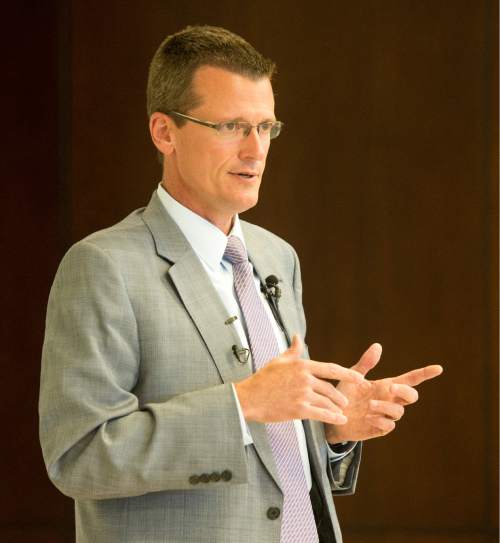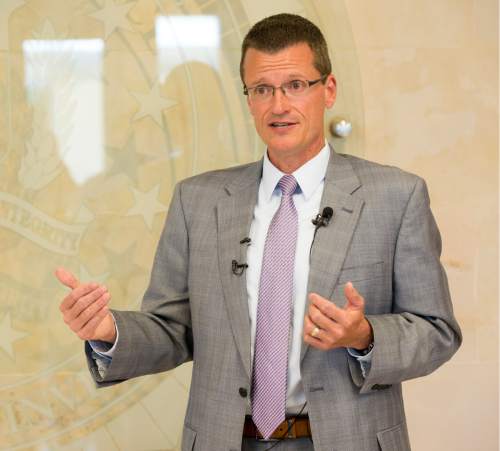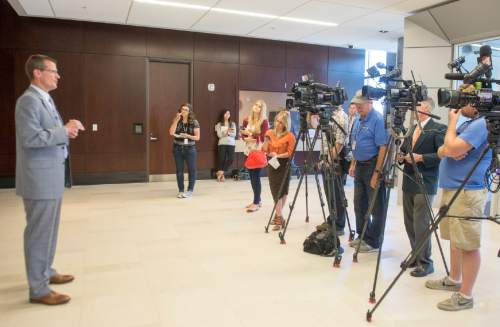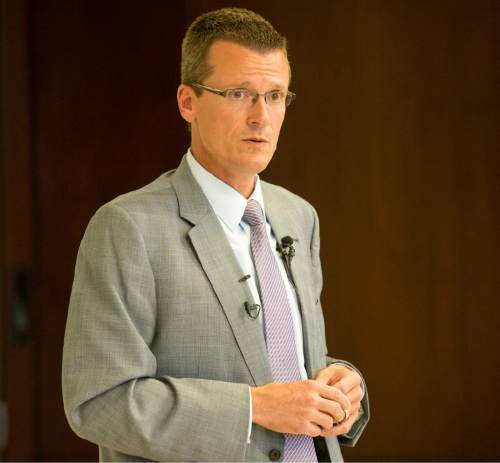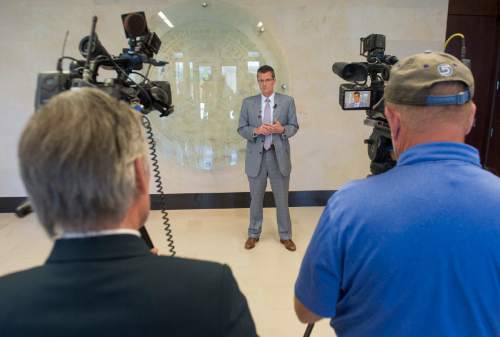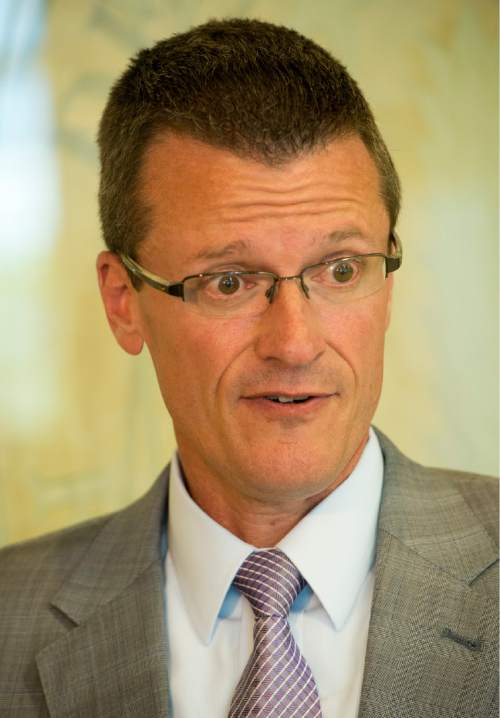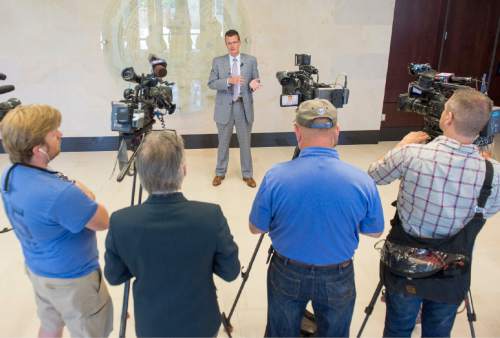This is an archived article that was published on sltrib.com in 2016, and information in the article may be outdated. It is provided only for personal research purposes and may not be reprinted.
FBI agents in Utah say they will work with "renewed determination" to detect and prevent security threats in response to the mass shooting in Orlando, Fla., early Sunday morning.
The attack, perpetrated by Omar Mateen, 29, who allegedly swore allegiance to the Islamic State, left 49 dead and 53 wounded at a gay nightclub. One of the deadliest mass shootings in modern U.S. history is pushing FBI units in the state and in the nation to beef up efforts and "redouble down" on investigations, said Special Agent in Charge Eric Barnhart with the Salt Lake City division.
Though he said there are "several" pending investigations — declining to comment on an exact number — with similar radicalism and "homegrown violent extremists" in Utah, there is no reason to believe any of those present "actionable plans or intents or any indications that anything is imminent."
Barnhart said in a news conference Thursday that the bolstered efforts will include re-examining records, digging through the surge of new tips and working with local agencies to cast a broader net with terrorism task forces.
"If we had 10 sets of eyes on that information on one day, even more will be on it the next day," he said.
Terrorist organizations, particularly the growing Islamic State, are the "greatest concern" for the FBI, Barnhart said. The radical militant group presents a different, less tangible threat to the U.S. than any before it.
Prior to and including the 9/11 attacks, led by al-Qaida, acts of terrorism were "spectacular" and planned well in advance, Barnhart said. Those organized by the Islamic State are less predictable and come more often from one person working alone, which is harder to detect.
People working for the Islamic State, he said, can find ample instructional materials online, too, and don't have to travel to the group's strongholds in Iraq and Syria to show their allegiance.
"[The Islamic State's] message is 'If you cannot come and join the caliphate, kill where you're at and radicalize where you're at,' " Barnhart said.
Finding the adherents, then, is akin to "searching for needles in a haystack of needles," Barnhart said. Islamic State members tend to blend in, and finding red flags can be difficult, he said.
That isn't to say the FBI doesn't watch the visitors on particular websites and internet forums, but viewing a page online isn't itself an act of terrorism. Suspicious activity online must be combined with other acts — such as spoken threats, abrupt changes in appearance or sudden travel to suspicious areas — to indicate terrorist inclinations.
If someone's actions are particularly concerning, the FBI may interview him or her, though even then the majority of people questioned are dismissed as nonthreatening and unlikely to act on any aspirations, Barnhart said.
Mateen, the Orlando shooter, was questioned three times by the FBI after he made alarming comments about al-Qaida and Hezbollah in May 2013, another Islamist group based in Lebanon. According to a statement from FBI Director James Comey, released Monday, officers closed the investigations when Mateen admitted to making the statements after co-workers teased him for being Muslim.
Comey said the FBI will comb through the materials they collected from those interviews to see "whether there is something we should have done differently," though there was not enough evidence at the time to charge Mateen with any crime. Without a formal charge, Barnhart said, there is no way to restrict who can purchase a firearm.
Agents across the U.S. will work to review Mateen's case and find ways to improve the FBI's vetting process as part of the renewed efforts, the agency said. Another component of the improvements will be disrupting potential threats sooner and reaching out to potentially targeted groups, such as the LGBT community.
"We don't want to give in to these savages," Barnhart said. "We can always get better. There is a lesson learned at every event, whether it be the Boston Marathon bombing or anything else."
It's important that people not live in fear of a terrorist attack, Barnhart said.
"In light of Orlando, we can't guarantee absolute safety," he said. "Live your lives, be vigilant; if you see something concerning, let us know."
Twitter: @CourtneyLTanner


